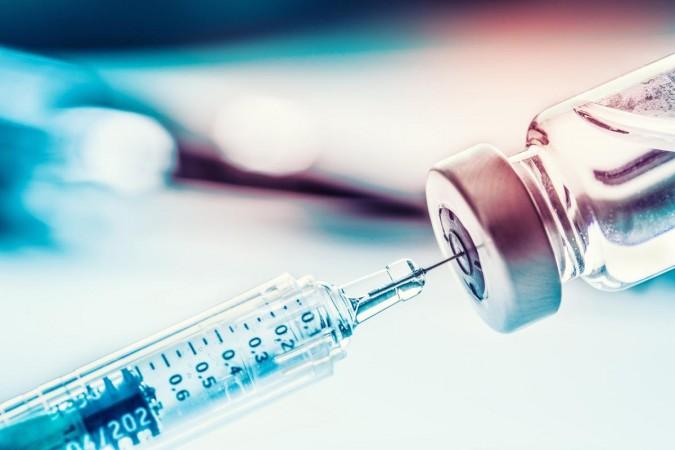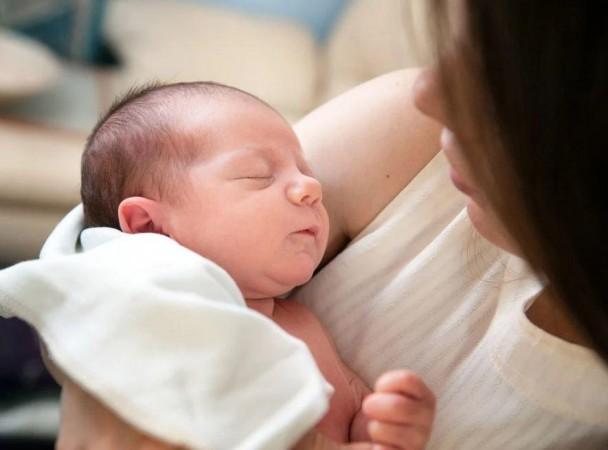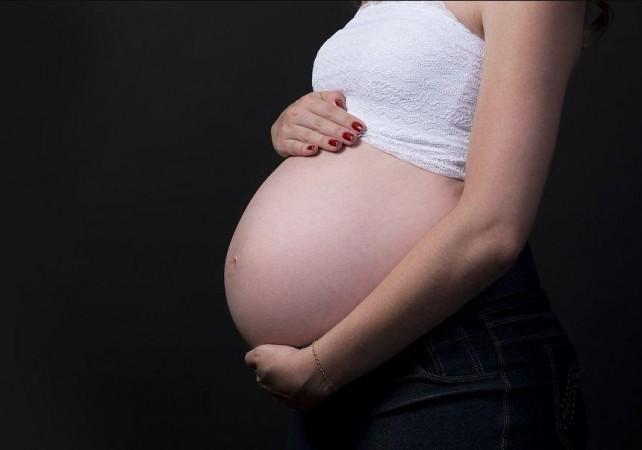Vaccination has been deemed as the only viable weapon against the SARS-CoV-2 virus. Certain sections of the population are at a higher risk of developing severe illness, and therefore, must be inoculated on priority. This also includes pregnant women. However, there has been hesitancy among expecting mothers to be vaccinated. Offering some encouragement to do so, scientists have stated that mothers who are vaccinated against COVID-19 during pregnancy pass high levels of antibodies to their babies.
According to a new study by researchers from New York University Langone Health, babies born to women who received mRNA COVID-19 vaccines during pregnancy were found to have protective antibodies at birth. The mothers had received either the Pfizer–BioNTech or Moderna COVID-19 vaccine, and 100 percent of the infants were born with antibodies against the spike of the SARS-CoV-2 (anti-S IgG). The findings were published in the American Journal of Obstetrics & Gynecology—Maternal–Fetal Medicine.
"Studies continue to reinforce the importance of vaccines during pregnancy and their power to protect two lives at once by preventing severe illness in both mothers and babies. If babies could be born with antibodies, it could protect them in the first several months of their lives, when they are most vulnerable," said Dr. Ashley S. Roman, principal investigator of the study, in a statement.
Evaluating Antibodies in Newborns

The efficacy of a COVID-19 vaccine—Pfizer–BioNTech and Moderna mRNA vaccines in this case—lies solely in its ability to induce the production of necessary antibodies against the SARS-CoV-2. It is only then will the body be able to mount a strong immune response when exposed to the novel coronavirus. However, the question of whether this protection is passed on from a vaccinated mother to her unborn child has been speculated about.
For the current study, the authors collected umbilical cord blood samples from 36 newborns at the time of delivery. The obtained samples were analyzed for anti-S IgG. Of the 36 mothers, 35 had received both doses of either of the mRNA vaccines during pregnancy. Only one had received a single dose. The median interval from completion of the vaccination course to delivery was 13 weeks.
High Levels of Antibodies

It was found that all 36 infants (100 percent) had protective antibodies at birth. All of them possessed high degrees of anti-S IgG. 34 neonates had titer values of >250 U/mL and two had 249 U/mL and 201 U/mL, respectively.
The mothers of both newborns with blood titers 250 U/mL. Also, the neonate whose mother had received only one dose of the vaccine still had a high titer value of >250 U/mL.
Vaccination Crucial In Pregnant Women
Importantly, it was noted that the highest levels of antibodies in umbilical cord blood were from those infants whose mothers had been fully vaccinated during the second half of their pregnancies. Therefore, the observation serves as evidence of immunity transferred to newborns. This corresponds to protection against COVID-19 in infants during the initial months of their lives.

Most existing studies examine only anti-S IgG. These antibodies are acquired either through vaccination or after contracting the COVID-19 infection itself. However, antibodies against nucleocapsid protein, or anti-N IgG, are found in the body only after natural infection. When 31 cord blood samples were tested for anti-N IgG, they all tested negative (i.e) they were absent.
"High levels of transplacental antibody transfer are not surprising. It is consistent with what we see with other immunizations. Our findings add to a growing list of important reasons why women should be advised to receive the COVID-19 vaccine during pregnancy for the added benefit of their newborn receiving crucial protection," stressed Dr. Jennifer L. Lighter, senior author of the study.
Need for Additional Research
The authors admitted that the sample size of the study was small. Despite this, "it is encouraging that neonatal antibody levels are high if women are vaccinated," expressed Dr. Lighter. They also acknowledged that blood samples were not collected from mothers.

"A limitation of this study is that we did not obtain maternal blood to correlate maternal and neonatal antibody levels, though others have found that a correlation may exist," the authors wrote. However, the high level of antibodies found in cord blood renders this correlation less clinically significant, the study said.
According to the team, further research is required to ascertain the effectiveness of the antibodies in infants and the duration of protection. Additional studies are also required to glean whether mothers receiving vaccination during the second half of their pregnancy may result in higher antibody transfer levels than vaccination in the early stages of pregnancy.
The researchers also stated that antibody transmission among newborns in a larger population must be focused on by future studies, along with the evaluation of the durability of antibody detection during infancy.

















